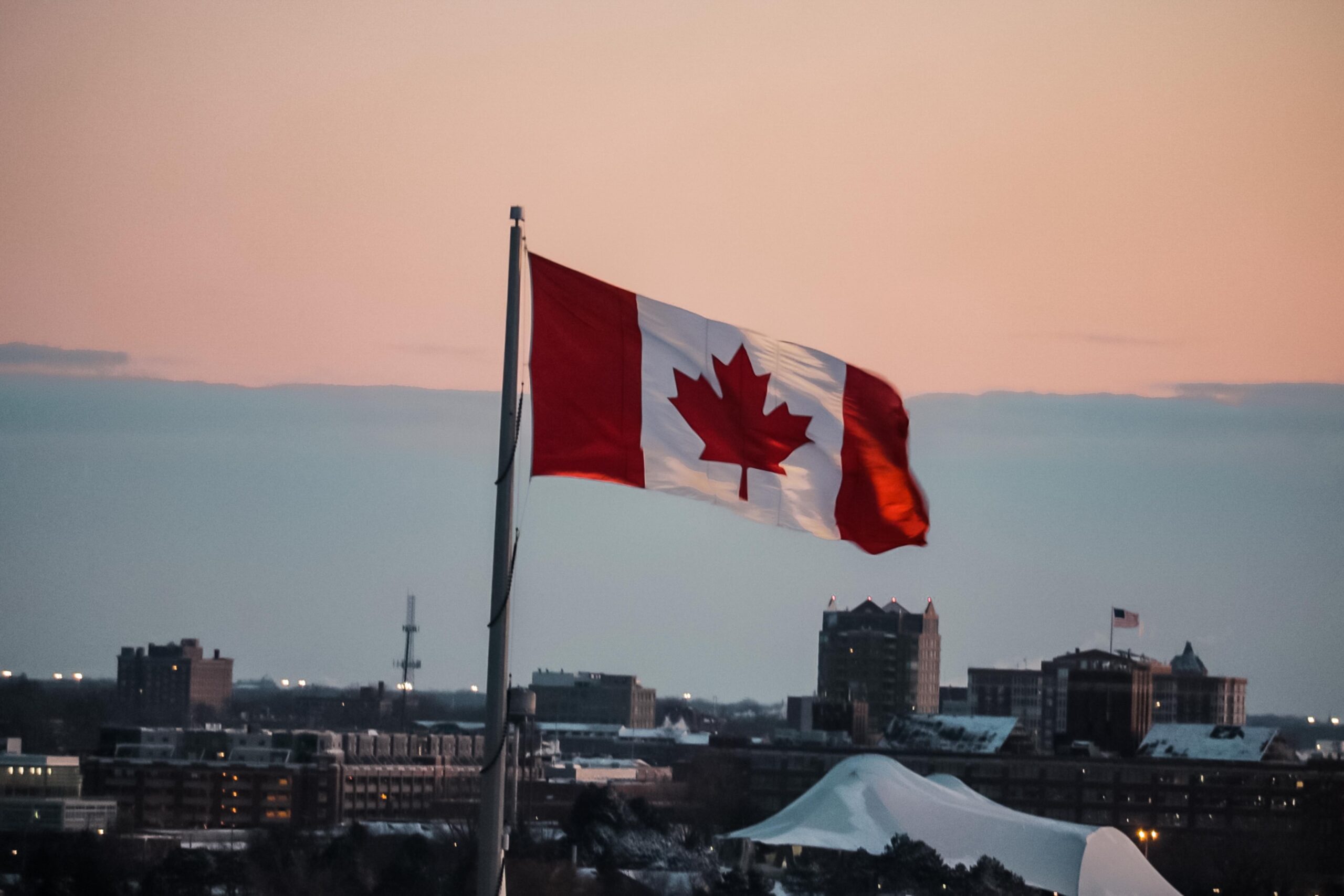Explore opportunities in Canada: diverse, welcoming, and offering a great quality of life for students, newcomers, and professionals
Canada beckons with promising opportunities for students, newcomers, and professionals alike. As a student, you’ll find top-notch education in a friendly and diverse atmosphere. Newcomers are welcomed with open arms to a land known for its inclusivity and cultural richness. For professionals, Canada offers a robust job market and a chance to thrive in a work environment that values skills and innovation. Stunning landscapes and a high quality of life makes Canada a compelling reason to relocate if you are willing to opt for an adventure in a new land.
In 2024, Canada continues to be a desirable place to live with its high living standards and strong social security system. The country has seen a surge in career opportunities, particularly in innovative sectors such as technology and renewable energy. The lifestyle changes in Canada have been marked by a growing emphasis on sustainability and a greater focus on work-life balance.
Living standards, too, have improved with increased access to affordable housing, healthcare, and education. The overall experience of living in Canada in 2024 is one of stability and opportunity, with a thriving economy and a diverse, inclusive society.
Is it a good idea to move to Canada?
Overall, Canada is considered one of the most attractive countries in the world to live and work due to its high living standards, safety, and healthcare. Many people choose to move to Canada to experience these advantages and build a better quality of life for themselves and their families.
What are some of the advantages of Living in Canada?
 Quality of life
Quality of life
Canada’s high quality of life is influenced by various factors such as economic stability, safety, education, and public health systems, as well as social security programs. The country’s thriving economy offers job opportunities and a high standard of living, while its low crime rates and strong emphasis on safety contribute to a sense of security. Canada’s education and healthcare systems are renowned for their accessibility and quality.
Additionally, Canada’s social security programs, such as old age pensions and unemployment benefits, contribute to a sense of financial security for its citizens. Over the years Canada has ranked as among the best countries for quality of life.
 Healthcare
Healthcare
In Canada, the publicly funded healthcare system is primarily governed at the provincial and territorial level, with each region responsible for managing and delivering healthcare services to its residents. The system covers a wide range of services, including doctor visits, hospital stays, and medically necessary procedures. Residents can access healthcare by presenting their provincial health card at a clinic or hospital. This is part of the mandatory requirement of having health insurance to access medical services in the country.
 Free public schooling
Free public schooling
In Canada, citizens and permanent residents benefit from free public schooling for children aged five to eighteen, allowing access to quality education from an early age. Additionally, Canadian universities and colleges offer subsidized higher education with lower tuition fees for degree, diploma, and certificate programs. This makes pursuing higher education more accessible and affordable for those who are looking to further their academic and career goals. The Canadian education system is known to be world-class, with institutions ranking highly on the global stage.
 Diversity
Diversity
Canada is widely known for its diversity and multiculturalism, with a significant presence of immigrants from various parts of the world. The country promotes equal rights for all its residents, regardless of their cultural background, and encourages the maintenance of customs and culture.
Additionally, Canada has a strong system of social security and welfare programs that support vulnerable demographics, including seniors, people with disabilities, and low-income families. These programs provide a safety net for those in need and contribute to the overall well-being of Canadian society.
 Social services
Social services
As permanent residents in Canada, individuals are eligible for various social benefits to support themselves and their families. One of the key benefits is unemployment insurance, providing financial assistance to those who have lost their jobs. The monetary assistance for unemployment insurance can vary, but it may be around CAD 573 (INR 33,000) per week.
Another important social benefit available to permanent residents is the Canada Child Benefit, which provides financial support to families to help with the costs of raising children. For children under 6 years old, the benefit can amount to CAD 6833 (INR 3.9 lakhs) per year.
 Canadian citizenship
Canadian citizenship
To obtain Canadian citizenship, a person must have lived in Canada for at least 1,095 days (or three years) out of the five years preceding the date of their application. Holding a Canadian passport offers numerous advantages, including visa-free or visa-on-arrival access to over 180 destinations worldwide. This makes travel easier and more convenient for Canadian citizens, whether for business, leisure, or personal reasons.
 Work-life balance for professionals
Work-life balance for professionals
Canada offers an exceptional overall quality of life due to a variety of key factors. The country prioritizes a healthy work-life balance, providing ample public holidays and relaxed working hours to allow residents to enjoy leisure time.
Additionally, Canada’s strong economy and high wages contribute to a high standard of living for its residents. The abundance of nature, from stunning national parks to serene lakes and mountains, offers endless opportunities for outdoor recreation and relaxation. Overall, Canada’s focus on work-life balance, high wages, abundant nature, high standards of living, and low crime rate all contribute to the exceptional overall quality of life enjoyed by its residents.
 Spacious and beautiful properties
Spacious and beautiful properties
Canada is home to some of the most spacious and beautiful properties in the world, especially when compared to the smaller houses in the UK. The larger size of Canadian homes allows for more space for families to enjoy, with plenty of room for children to play and for hosting gatherings. Furthermore, the natural surroundings of these properties contribute to a peaceful and idyllic family living experience.
 Job opportunities
Job opportunities
In Canada, the top 5 most in-demand job fields include healthcare, information technology, skilled trades, engineering, and finance. The demand for skilled workers under the Federal Skilled Workers programme is high, as Canada is facing significant labour shortages in these fields. The Federal Skilled Workers programme is specifically designed to attract immigrants with the skills and experience needed to fill these gaps in the labor market.
 Family-friendly
Family-friendly
Canada offers a family-friendly atmosphere with its safe suburban streets and wide range of community events catering to families. From neighborhood block parties to city-wide festivals, there are plenty of opportunities for families to come together and socialize. In addition, Canada boasts an abundance of opportunities for children, ranging from sports programs to art classes and educational extracurricular activities.
The country provides a positive environment for raising a family with its emphasis on safety and quality of life. Canada’s outdoor activities, such as hiking, skiing, and camping, make it an ideal place for families to stay active and spend time together.
 Outdoor lifestyle
Outdoor lifestyle
The Canadian outdoor lifestyle is characterized by a wide variety of activities and sports enjoyed throughout the year. In the warmer months, Canadians love to hike, bike, canoe, and camp in the beautiful natural landscapes. During the winter, skiing, snowboarding, and ice hockey are incredibly popular activities. Ice fishing and snowshoeing are also enjoyed in many regions.
Many parks and trails are free to access, and families can often find affordable equipment rentals or second-hand gear for activities like skiing and snowshoeing. Additionally, many communities offer free outdoor skating rinks and public hockey games, making it easy for families to enjoy winter sports without breaking the bank.
 Malls, Multiplexes and Infrastructure
Malls, Multiplexes and Infrastructure
Modern metropolitan living in Canada offers spacious and well-designed cities, urban convenience, and easy transportation. These cities boast modern infrastructure, cultural diversity, and a vibrant atmosphere. Residents have access to a wide range of amenities, including restaurants, shopping centers, entertainment venues, and recreational facilities.
 Tolerant and open-minded
Tolerant and open-minded
Canada has long been known for its open-minded and tolerant approach to social issues, making it a welcoming and inclusive country for people from all walks of life. One of the most prominent demonstrations of Canada’s open-mindedness is its legalization of same-sex marriage in 2005, making it one of the first countries in the world to do so. This decision reflected the country’s commitment to equality and non-discrimination, setting a powerful example for other nations.
Additionally, Canada is known for its openness to immigrants from diverse backgrounds, with a strong emphasis on multiculturalism. The country’s non-discriminatory policies and inclusive attitude have made it a sought-after destination for people around the world. Canada’s reputation for being non-discriminatory and embracing of all races, genders, and cultures has solidified its position as a global leader in promoting tolerance and diversity.
 The United States is right next door (almost)
The United States is right next door (almost)
Canada has several major cities that are within 100 miles of the American border, including Vancouver, Toronto, Montreal, Calgary, and Winnipeg. Being so close to the United States offers a great convenience for travel, as it is relatively easy to travel to and from the USA. Whether it’s for business or leisure, the proximity to the US border makes it convenient for Canadians to cross over for short trips without the need for a visa, thanks to the visa waiver program.
This means that Canadians can easily visit the US for shopping, visiting friends and family, or even just for a quick getaway without the hassle of obtaining a visa. This close proximity also benefits trade and commerce between the two countries, as it allows for speedy and efficient transportation of goods and services.
 Air And Water Quality Is Very Good
Air And Water Quality Is Very Good
Canada’s air and water quality is consistently ranked as one of the best in the world. The Canadian government has put in place strict regulations and measures to maintain high air and water quality, including the Canadian Environmental Protection Act and the Fisheries Act.
 Cheaper rent as compared to in the US
Cheaper rent as compared to in the US
Generally, rental costs in Canadian cities are lower than those in major comparable US cities. Location is a significant factor that impacts rental costs, as the proximity to urban centers, amenities, and public transportation can affect the price of rent.
 Public Services
Public Services
Canada’s public services are widely regarded as first-rate, with the country boasting some of the finest public transportation available. The government invests significantly in maintaining and improving infrastructure, resulting in reliable and efficient public transportation systems in major cities and regions across the country.
 Wildlife and Nature
Wildlife and Nature
Canada is a haven for diverse wildlife and natural beauty, boasting iconic Rocky Mountains, 37 national parks, and a strong commitment to green urban areas. Majestic wildlife such as bears, bison, and beavers roam the breathtaking landscapes, from turquoise lakes to snowcapped mountains.
Each province offers unique wildlife and natural attractions, from the lush forests and wine regions of British Columbia to the picturesque coastlines of Nova Scotia. The country’s dedication to sustainability and preservation also shines through in its green urban areas, with cities like Vancouver and Montreal leading the way in eco-friendly initiatives.
The tradeoff: What are some of the disadvantages of living in Canada?
Canada is known for its beautiful landscapes, friendly people, and high quality of life. However, like any other country, there are certain cons to living in Canada that individuals should be aware of. From harsh weather conditions to the high cost of living, there are challenges that come with calling Canada home.
 Canada has a high cost of living
Canada has a high cost of living
In Canada, the average monthly expenses for a single person can range from $2,500 to $3,500, depending on the location and lifestyle. Factors contributing to the high cost of living in Canada include the high cost of housing, healthcare, groceries, and transportation. In larger cities like Toronto and Vancouver, the low-income threshold is higher due to the increased cost of living. In these cities, an individual would need to earn at least $20,000 to $30,000 annually to meet their basic needs. This includes rent, food, transportation, and utilities.
 Canadians pay high taxes
Canadians pay high taxes
In Canada, the federal income tax rates range from 15% to 33% for individuals, while provincial income tax rates vary by province, with rates ranging from 5% to 21%. The average tax burden in Canada is around 32%, which is higher than in the United States.
But the high taxes in Canada are due to the country’s commitment to funding social services and healthcare. These taxes help support universal healthcare, education, infrastructure, and social welfare programs. The higher tax rates are also a result of the progressive tax system, which aims to reduce income inequality and provide assistance to those in need.
 Frigid climate
Frigid climate
Canada experiences extremely cold winter weather, with temperatures often dropping well below freezing. The variation in temperature across different regions can be significant, with the northern territories experiencing even colder temperatures compared to the southern provinces. The impact of this extreme weather on daily life is significant, with transportation disruptions, school closures, and increased energy consumption for heating. You can get around the frigid climes by gearing up with appropriate winter wear.
Canadian homes and buildings are designed to withstand the cold, often featuring insulation, triple-pane windows, and efficient heating systems. People also adapt to the extreme weather by wearing layers, using snow removal equipment, and participating in winter sports and activities.
 You will need to build your credit history
You will need to build your credit history
Canada does not recognize international credit history, so newcomers to the country will need to start building their credit score from scratch. To do this, individuals can open a Canadian bank account, apply for a credit card, or get a secured credit card to establish credit. It’s important to make timely payments and keep credit card balances low to build a positive credit history.
Additionally, newcomers can consider getting a small loan or using a co-signer for a loan to demonstrate their creditworthiness. You can indeed get yourself a house without a credit history but it’s crucial that you keep an eye on all your loans and credit card payments.
 Flights Are Expensive
Flights Are Expensive
Whereas flights can be expensive, the top 5 most affordable airlines or flight options in Canada include WestJet, Air Canada Rouge, Flair Airlines, Swoop, and Porter Airlines. To find discounted airfares and travel deals, consider booking well in advance, being flexible with your travel dates, signing up for airline newsletters for promotions, and using flight comparison websites such as Skyscanner or Kayak.
 No Marrying for Green Cards
No Marrying for Green Cards
In Canada, obtaining residency and citizenship through marriage involves applying for spousal sponsorship. This process requires the Canadian citizen or permanent resident to sponsor their foreign spouse, proving their genuine relationship and commitment. The sponsored spouse can then obtain permanent residency, and after meeting the residency requirements, can apply for Canadian citizenship.
However, using marriage solely to gain residency or fast-tracking citizenship is not only unethical but also illegal. Immigration authorities thoroughly investigate marriage-based applications to prevent fraud and misuse of the system.
 A New Culture
A New Culture
Canada and your home country may exhibit several cultural differences in communication styles, social norms, and customs. To navigate and understand these differences, individuals can seek out cultural orientation programs, connect with local community groups, and engage in cross-cultural communication training.
It is beneficial to approach interactions with an open and adaptable mindset, to ask questions and seek clarification when unsure, and to demonstrate respect for cultural practices and traditions.
Canada is a Huge Country. Where Should I Settle?
When deciding where to settle in Canada, it is important to consider several factors including job opportunities, especially in your field, will impact your decision. Additionally, the availability and quality of education for your children, the community environment, visa requirements, and the process for permanent residency application are all equally crucial.
To find additional information about Canadian provinces and territories, you can visit the official website of the Government of Canada or explore resources provided by the Canadian immigration authorities. These sources will provide detailed information about job opportunities, education systems, community environments, visa requirements, and the permanent residency application process in different provinces and territories.




